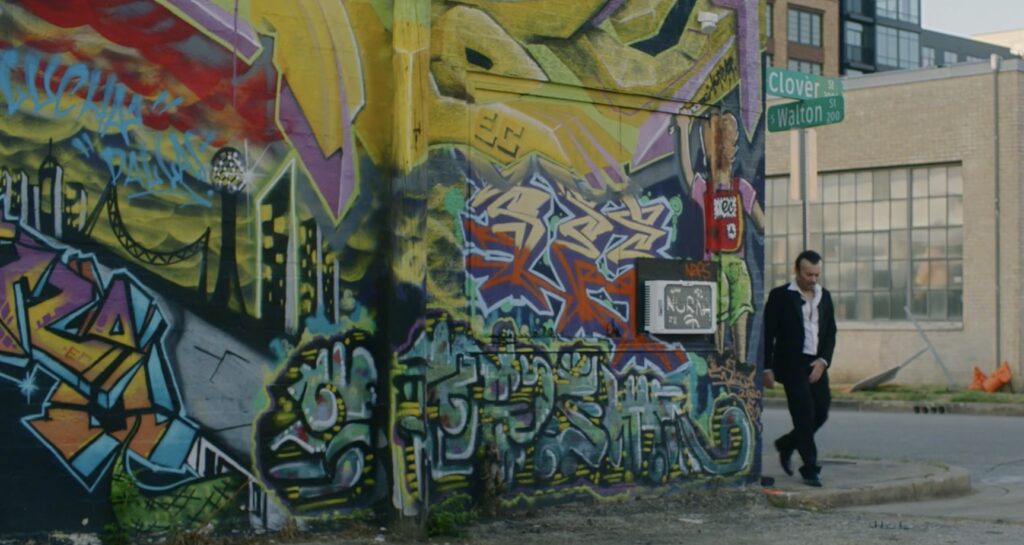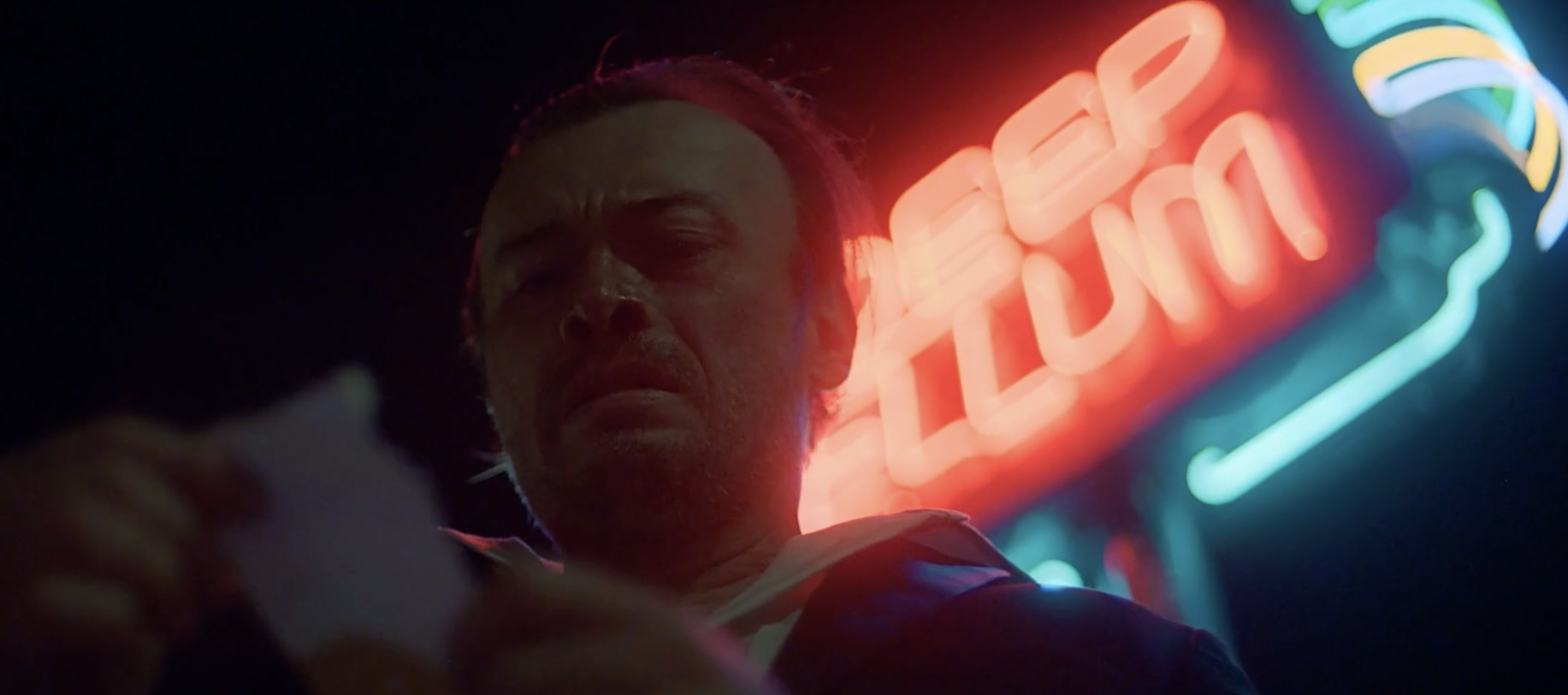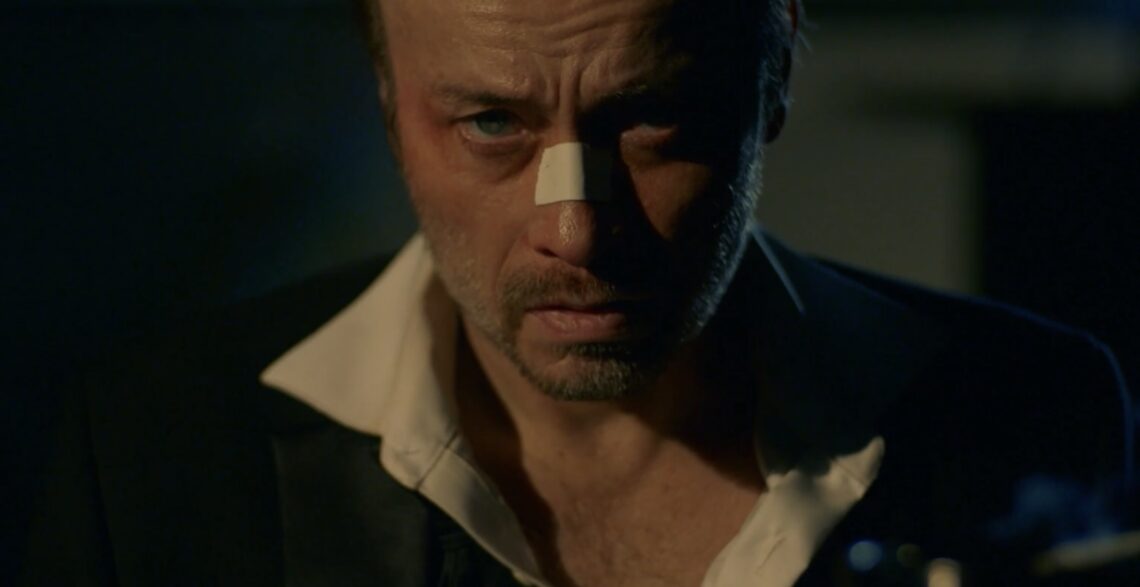In Derek Presley’s latest film, Tonic, we follow the ups and downs of a barfly jazz pianist. In this down home story – told over one exhaustive night – Sebastian Poe (played by Billy Blair) is a man out of options who constantly weighs his pressured offer to commit murder in exchange for his drug debt to a crooked cop. A no-win “what would you do?” scenario if ever there was one.
But let’s clear some things right up front. There is no Liam Neeson, no flashy cuts and edits, or heroic music. In fact, there is no music at all (save for needle drops and source music which was done live) just the hum of neon light and a character alone in his thoughts, or lost in several disarming monologues.

This is honest, raw and done in near real-time. On that note, Presley takes his time with certain scenes to show the depths of characters and the gravity of the situation. It helps connect us to the narrative, an almost surreal audience surrogate type situation.
Moreover, Tonic has an unpolished facet to the story which is unpleasant at times, but also captures a realism that doesn’t seem rehearsed or scripted. Take for instance a scene where Poe flees a bar and slips on his way out the door. It all happens in a few blink-and-you-miss-it frames – not at all evident it was planned – but it comes across as legitimate in his frenzied escape. At the moment, the hill Poe has to climb is steep, but for the rest of the 100 minute run time it’s going to get steeper and even more slippery.

It’s almost laughable how stacked the odds are, and yet we’re pulling for someone we’ve never met, who has an unsavory existence, and continues to get zero help at every turn. He can’t even get a quarter for a pay phone. Yes, a pay phone! Yet that’s the success of Presley’s story. We’re not pulling for rainbows and dandelions, but for Poe to not end up in the ground.
Blair is a capable and well placed “every man”, and while his series of bad mistakes seems off-putting, there’s a reason behind each of his previous screw ups. One of the best scenes is where we get to the heart of the character. In a long conversation between Blair and Jason Coviello, (playing Rush) Poe is told that he “may not be a killer but he’s certainly a criminal.” That kind of interaction – where one character holds a mirror to another – can be as eye-opening to them as it is to us on this side of the screen.

Finally, there’s a down-home charm shooting in Deep Ellum (Dallas’ arts/jazz scene) and that is as weighty as Poe’s struggles. A North Texas noir, Presley offers up a gritty street film – one more deep fried than hard boiled – with a few laughs that ease the tension on this trip through narrative quicksand.
G-S-T RULING:
The grimy story is not afraid to get even dirtier, swapping NYC for Dallas it still retains the punch of early Scorsese. So who wants to get a few drinks with Poe? Pretty sure we would…things would certainly be interesting.



